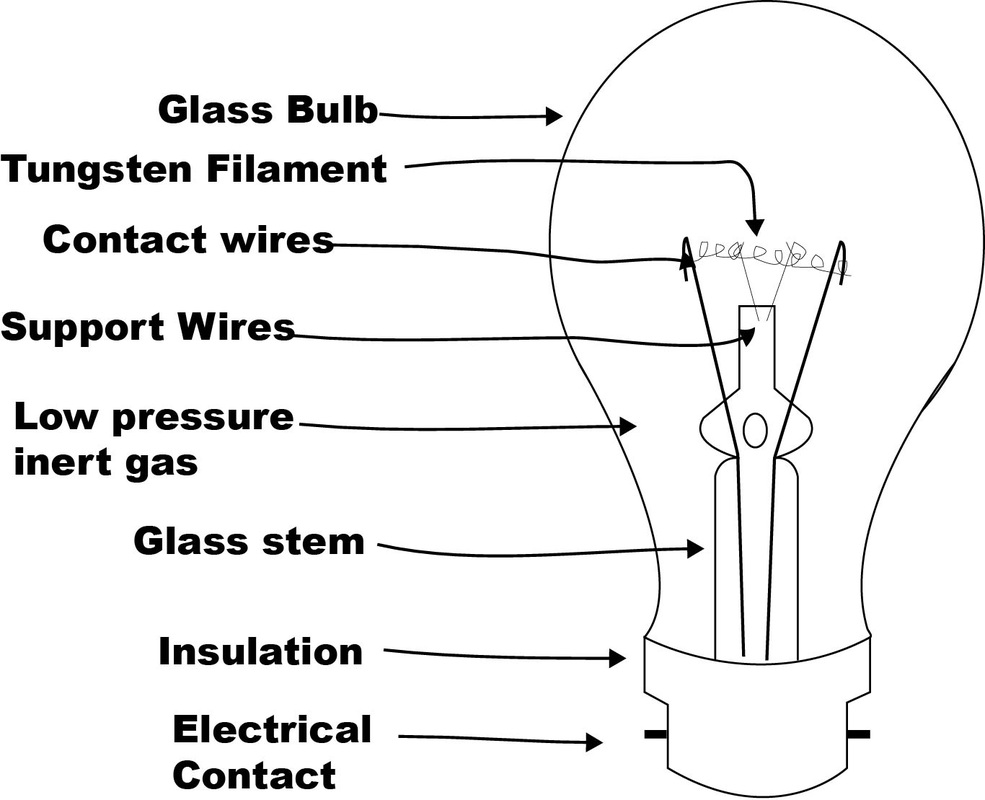
Form and Material Analysis Of Lights and Bulbs
Light Bulb Base Chart. Click or tap on a base to view matching bulbs from our catalog. Screw Bases 10mm Miniature Screw (E10) 11mm Miniature Candelabra (E11) 12mm Candelabra (E12) 14mm European (E14) 17mm Intermediate (E17) 26mm Medium (E26) 39mm Mogul (E39) Fluorescent Pin Bases

Light Bulb Schematic Diagram 20 Watt Tubelight Emergency Light Circuit Diagram Electronic
This is a diagram with all the parts of a light bulb labeled. The first page is the key and the second page is a blank diagram for your students to fill out. Subjects: Other. Exam Electricity and electrical safetyConductors and insulatorsElectronic components and symbols (battery, switch, light bulb, LED bulb, motor, resistor)Circuit.
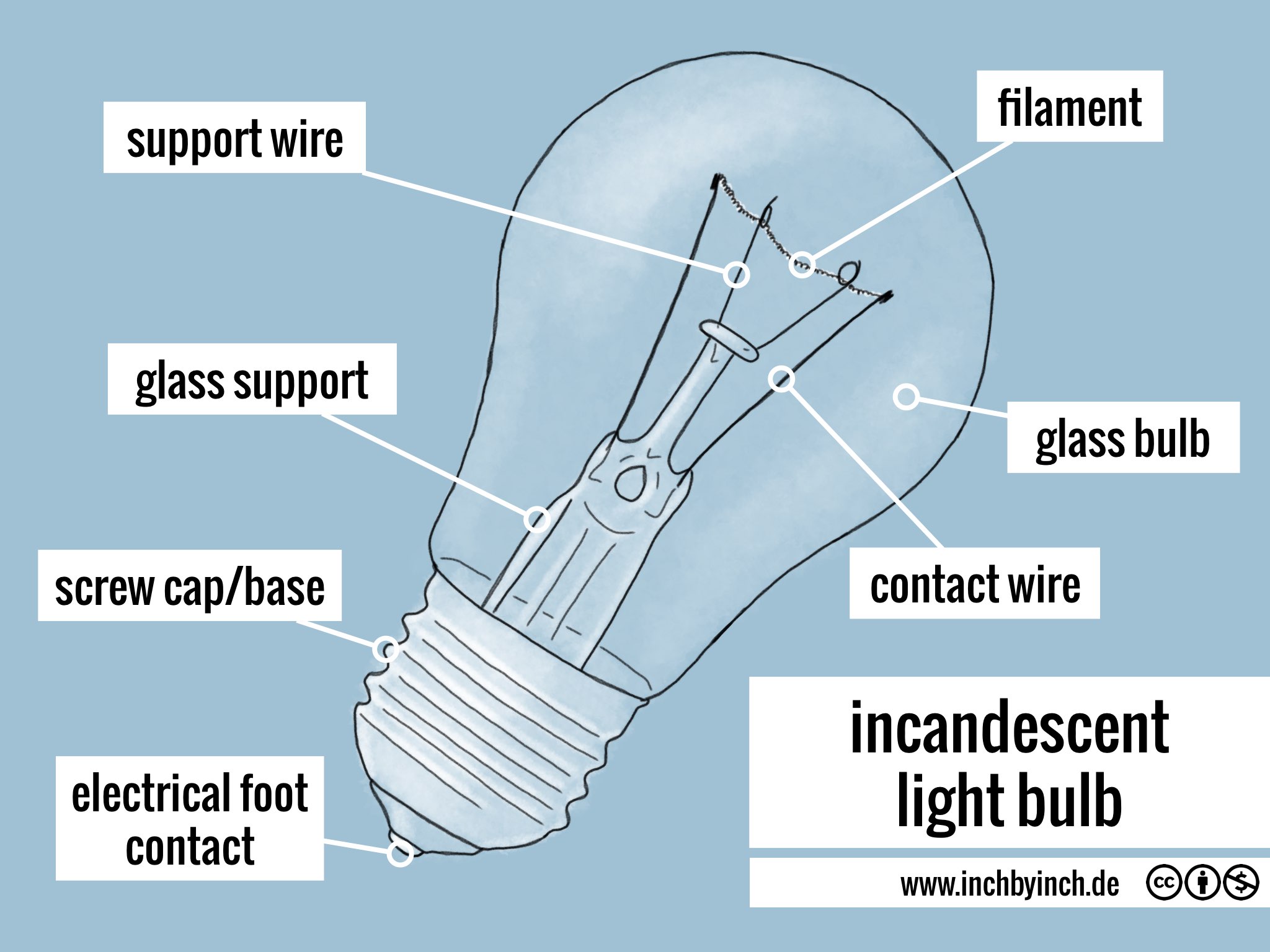
INCH Technical English incandescent light bulb
Standard-Medium, a regular sized screw in base: E26 or E27 Candelabra, a smaller screw in base: E12 Intermediate: E17 Bi-pin, a pin-in base with two points of contact: G4 or GU24 Twist-And-Lock base: GU10 For a helpful quick-select tool, check out our light bulb size chart! Now, let's explore the light bulb shape codes you're most likely to.

Free Layered Light Bulb Diagram for PowerPoint SlideModel Light bulb template, Light bulb
The lightbulb lumens to wattage chart below will help you understand which LED bulb is comparable to your current incandescent bulb. Simply take your current incandescent watts and select the corresponding LED bulb equivalent on the lumens brightness scale. Pay close attention to lumens, since this number indicates the brightness, or light.

Edison's light bulb turns 135 National Museum of American History
Light bulb wiring diagrams are diagrams that show how to wire a light bulb. These diagrams provide a visual representation of the wiring that is necessary to connect a bulb to a source of power. They are usually labelled with the type of bulb being used, the voltage required and the number of wires that need to be connected.
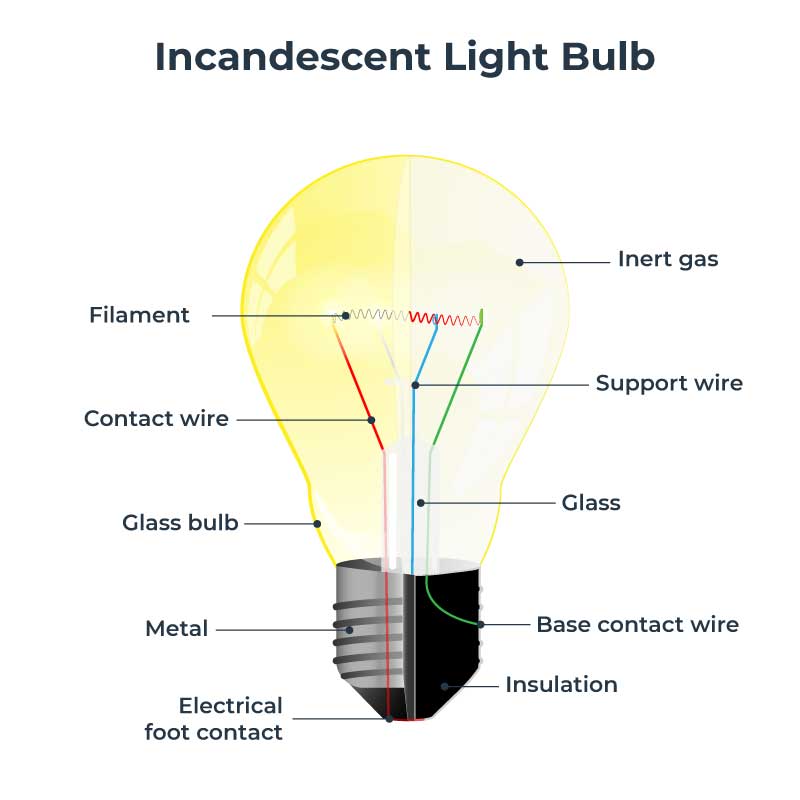
What is LED Lighting Atom Lighting
The Anatomy of LED Bulbs | TCP Lighting LED 101: What Is an LED Light Bulb? Aug 16, 2017 The LED abbreviation stands for Light Emitting Diode. An LED light bulb produces illumination through these diodes, as opposed to the filament and gas contained in incandescent and other older bulb types.

Explain the structure and working of an electric bulb with the help of labelled diagram Brainly.in
Advertisement Light Bulb Structure - The light bulb structure is fairly simple in design and allows for massive movement of free electrons. Learn about the light bulb structure and light bulb parts.

How do LED light bulbs work? Electrical Engineering Stack Exchange
A light bulb's wattage is no longer the way we determine a bulb's brightness. We now rate brightness in lumens, the more lumens, the brighter the bulb. To convert a light bulb's brightness by watts, look at this handy chart. Lumens / Incandescent light bulb (watts):375 lm / 25 W600 lm / 40 W900 lm / 60 W1125 lm / 75 W.
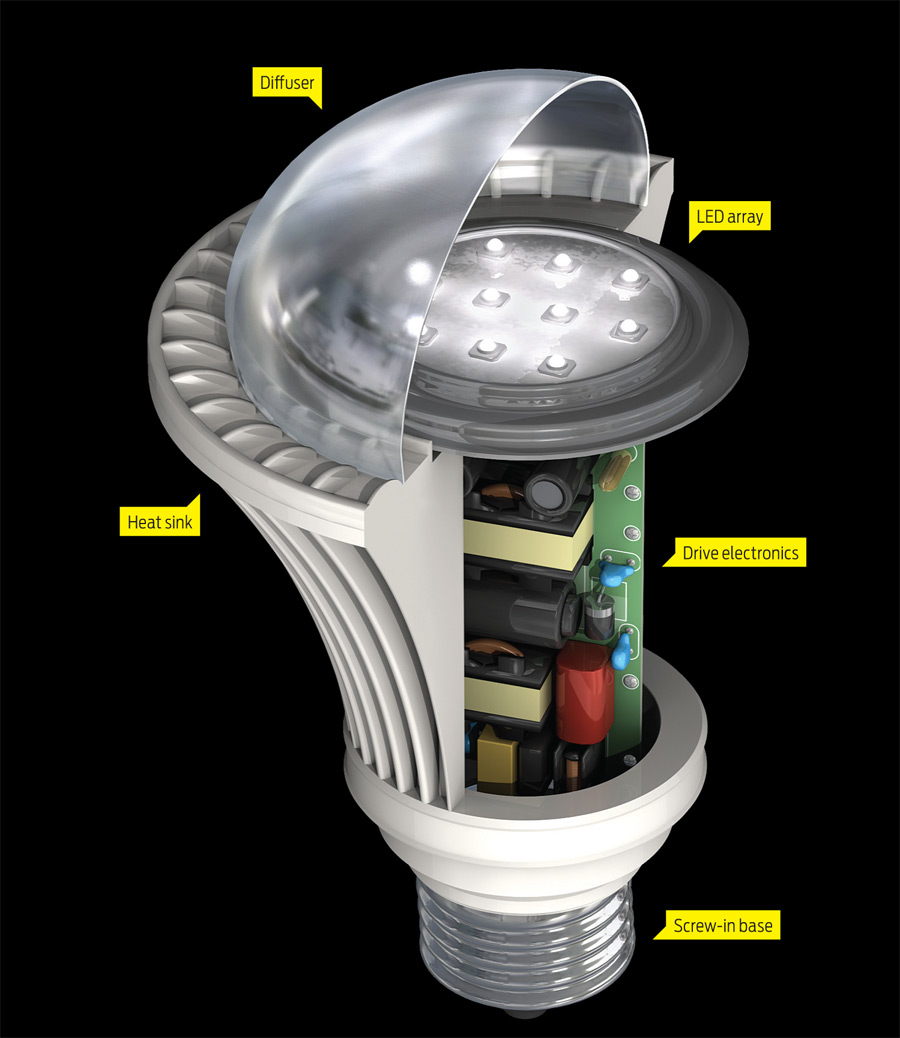
parts of a light bulb Science Wiki
The bulb is "A" type and the diameter would be 2 3/8" A 120BR40 is a 120-watt reflector 5" in diameter. Color Temperature (Kelvins) Reference Guide Kelvin Color Temperature in Light Bulbs Watch on Here are some answers to questions about light bulb color temperature. Warm light 2700k - 3000k

Parts of a Light Bulb Diagram Quizlet
Diagram showing the major parts of a modern incandescent light bulb. Glass bulb Inert gas Tungsten filament Contact wire (goes to foot) Contact wire (goes to base)

Incandescent lighting, Incandescent light bulb, Bulb
Find the lightbulbs shape you're looking for with this visual chart- detailed illustrations of bulb shapes include A19, MR16, PAR, and linear fluorescent tubes.
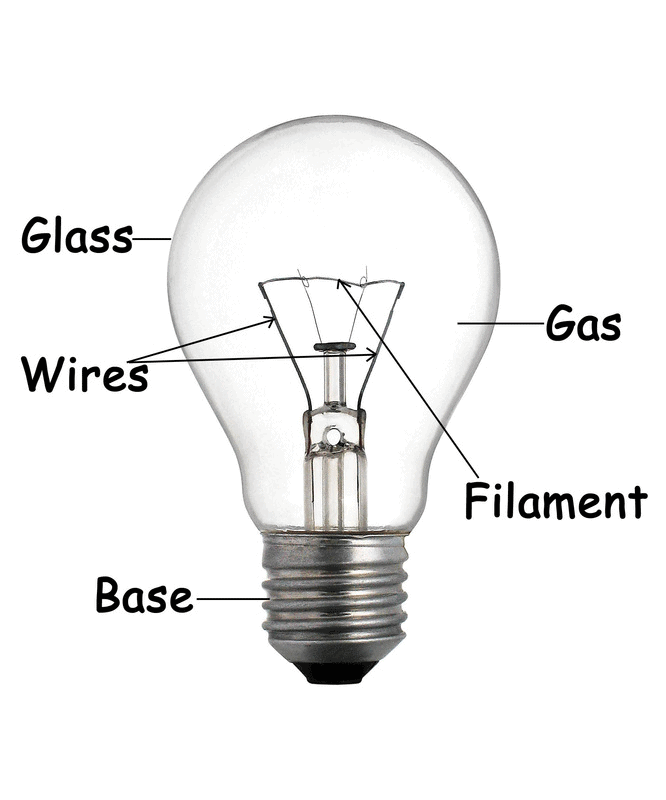
Study Notes Electricity and Circuits Class 6 Notes EduRev
A light bulb wiring diagram is a visual representation of the electrical connections and components in a light bulb. It provides a detailed illustration of how the different parts, such as the base, filament, and contacts, are wired together to create a functioning light bulb.
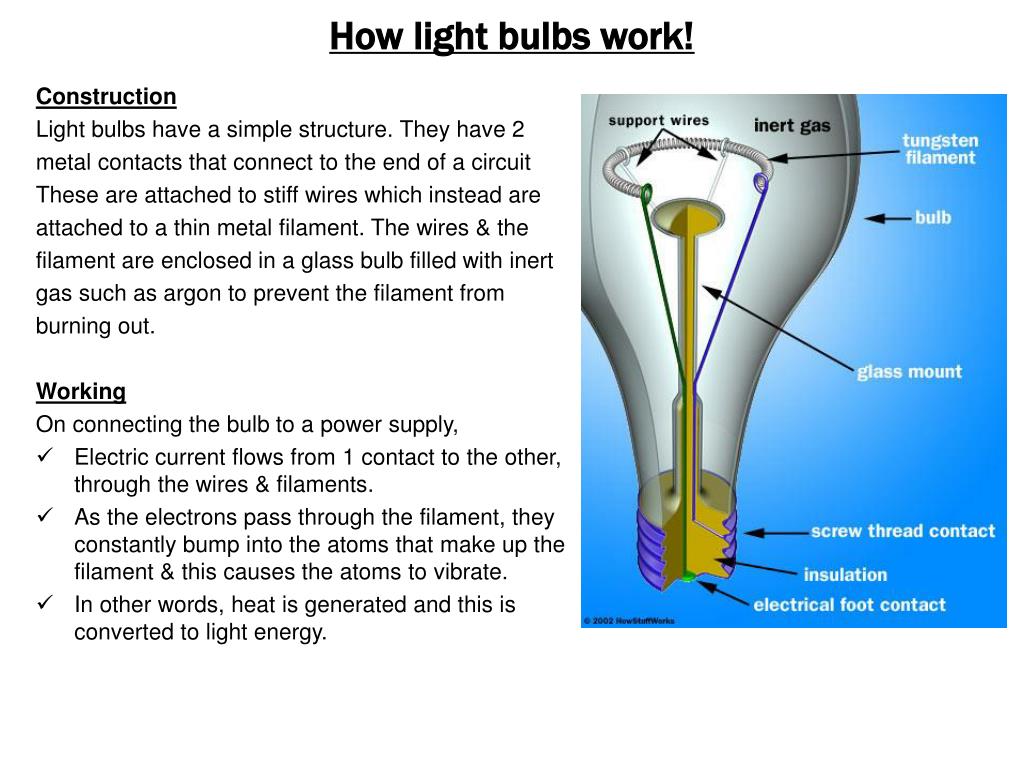
PPT How light bulbs work! PowerPoint Presentation, free download ID3001988
The numbers of the bulb indicate its base size, which is based on its diameter at its widest point, measured in eighths of an inch (⅛"). For example: An A19 bulb indicates that the bulb comes in a standard household shape (code A), and the '19' indicates that the base is 19/8ths inches in size.
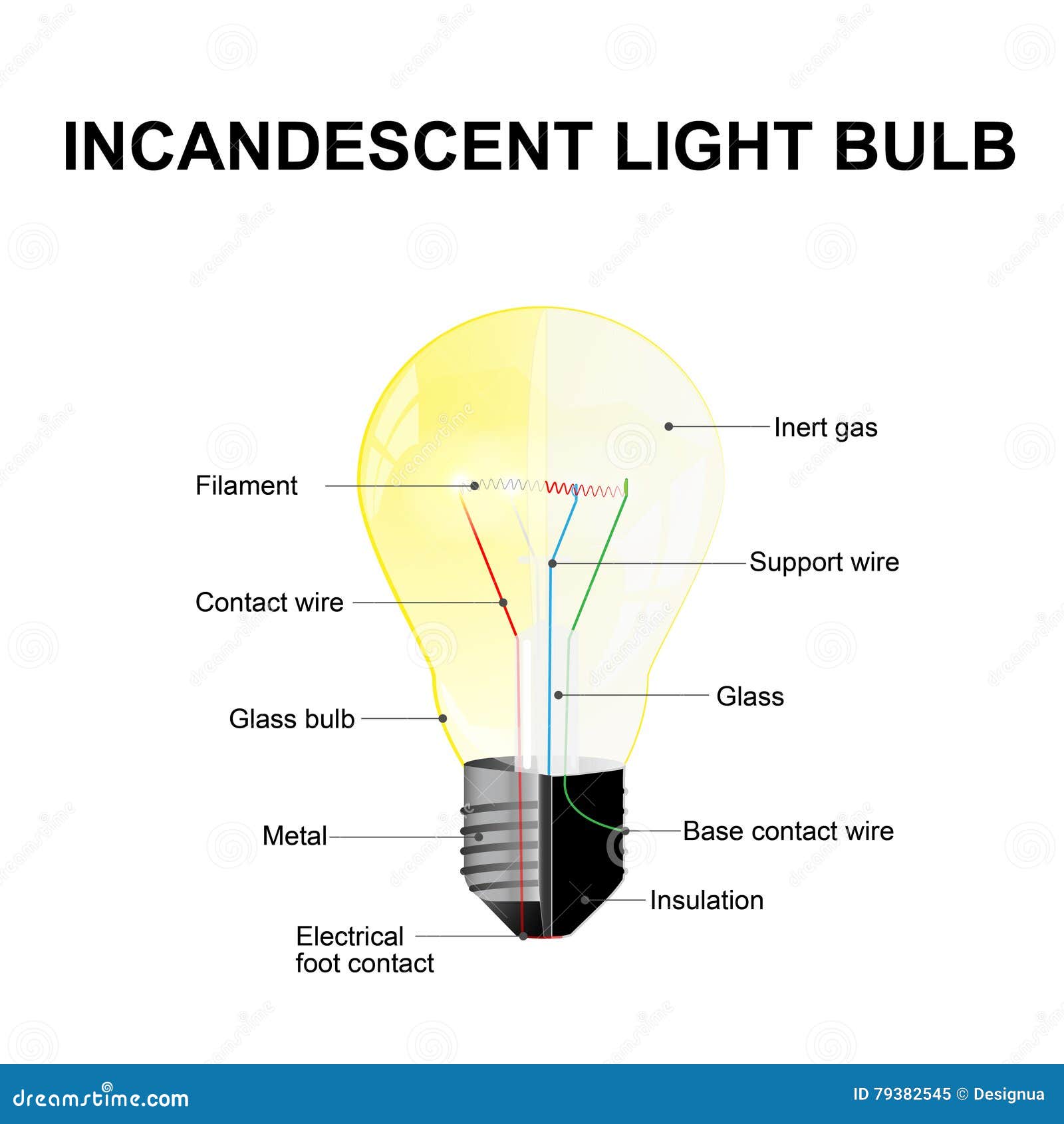
Incandescent light bulb stock vector. Illustration of technology 79382545
How were electric lamps invented? In 1878, Thomas Alva Edison began research into developing a practical incandescent lamp, and in 1879, the Electronic bulb was invented. Edison applied for a patent for "Improvement in Electric Lights" on 14 October 1878. Table of Contents What is Electronic Bulb? Structure of the Electronic Bulb

Patent US8297787 LED light bulbs in pyramidal structure for efficient heat dissipation
The Globe ••• The outer glass shell of the light bulb is called the globe. The glass ensures maximum light efficiency and provides strong support for the other parts of the bulb. The light bulb has a shape similar to a plant bulb; the rays of light from the filament are much more effective with this shape. The Filament •••

Explain the structure and working of an electric bulb with the help of labelled diagram Brainly.in
Diagram showing the major parts of a modern incandescent light bulb. Glass bulb Inert gas Tungsten filament Contact wire (goes to foot) Contact wire (goes to base) Support wires Glass mount/support Base contact wire Screw threads Insulation Electrical foot contact Where are they used?